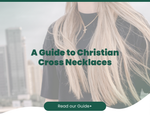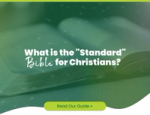Churches Unite to Denounce Welfare Cuts
Simon Cross
The Baptist Church, the Methodists, The United Reformed Church, the Quakers and the Church of Scotland, have all backed opposition to the government’s proposed cap to the amount of welfare payment families can receive.
The government want to ensure that no family receives more than £26,000, the average wage, a year in benefit payments.
But churches have united to call for a rethink of the policy, claiming that when a family currently qualifies for more than £26,000, it is because testing has shown they have ‘exceptional’ levels of need.
And while church leaders agree that the vast majority of families require less than £26,000 to live on, they also added that an assumption that no family can ever need more than that amount was contradicted by all available evidence.
The Revd Roberta Rominger, General Secretary of the United Reformed Church, said: “The principle that all who play by the rules should receive enough to meet their basic needs has been at the heart of the welfare system for 65 years; if the benefit cap becomes law that principle will be destroyed. Only families whose basic needs are less than £500 per week will be safe. Families who have greater needs, however rare, will be left behind.”
The Revd Leo Osborn, President of the Methodist Conference, said: “We regret much of the tone of the debate around welfare reform especially where it has encouraged people to blame the workless poor for their struggles.
"Rising unemployment, the deficit and flat economic performance are not the fault of the poor, nor will capping benefits solve these problems or realise any significant savings for HM Treasury.”
The Revd Jonathan Edwards, General Secretary of the Baptist Union of Great Britain, said: “Minimising the struggles of the workless, implying a high standard of living where there is none, and trivialising the problems of homelessness further pollute the debate. A benefit system which deliberately ignores the needs of a vulnerable minority will make the UK a darker and less humane place to live in.”
Paul Parker, Recording Clerk for the Quakers in Britain, said: “We know the Government intends to make cuts, but we object to it being at the expense of those who are unable to work. We challenge the benefit cap which takes no regard of family size and could split families.
"It is a principle of the Beveridge settlement (or welfare state) that those who meet the strict criteria for benefit should receive them. The welfare cap is a blunt and cruel instrument for reducing the deficit. We consider that the test by which proposed government cuts should be judged is the impact that they have on equality.”
While the four churches are calling for the government to scrap the bill, the Church of Scotland has added its name to a list of bodies supporting the amendments suggested by the House of Lords, one of which was tabled by a Bishop.
This news comes as a Yougov survey in the Sunday Times claims that British people want to see Bishops leave the Lords, where they represent the voice of the church.
Meanwhile Christian students are set to debate education cuts and tuition fees at a conference next month.
The Student Christian Movement (SCM) which is Britain's oldest national student organisation, has previously backed nonviolent direct action when Parliament voted to treble tuition fees in England.
The conference will take place at York St John University from 10 – 12 February, with mathematician and author Kester Brewin as keynote speaker.
Latest Blogs

Gifts
Finding Your Symbol of Faith: A Guide to Christian Cross Necklaces
Looking for the perfect symbol of faith? Explore our guide to Christian cross necklaces, from rustic wooden designs and sturdy men's chains to elegant silver pendants.

Gifts
The Best Christian Gifts for Under £20
Looking for a meaningful gift that won't break the bank? Explore our guide to the best Christian gifts under £20, from inspiring journals to beautiful home decor.

Gift Guide
15 Confirmation Gift Ideas for Boys and Girls
Celebrating a confirmation? Discover 15 meaningful gift ideas for boys and girls, from youth Bibles and jewellery to inspiring journals and keepsakes.

Bible
30+ Powerful Quotes About the Bible (For Inspiration in 2026)
Looking for inspiration? Discover a curated collection of the most powerful quotes about the Bible, from famous historical figures to modern theologians and Scripture itself.

Bibles
What is the "Standard" Bible for Christians?
Is there an "official" Bible that all Christians use? We explain the difference between the NIV, KJV, and ESV, and help you find the standard text for your church or personal reading.

Bible
"I Keep Failing to Read the Bible" – 5 Tips to Make the Habit Stick
Do you start a Bible reading plan only to quit a few weeks later? Stop the cycle of guilt. Here are 5 psychological tips and practical changes to help you build a Bible habit that actually lasts in 2026.
